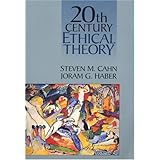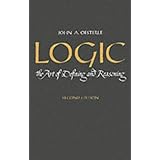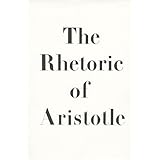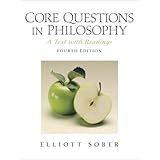
Average Reviews:

(More customer reviews)This is a fabulous historical anthology of twentieth-century Anglo-American philosophical thinking about ethics. Cahn and Haber have organized this collection chronologically rather than thematically. The anthology consists of four sections, each of which covers between twenty and thirty years. The selections here are extremely well-chosen, and almost all the major figures and trends are represented somewhere in this collection of papers and short book excerpts. The editors' emphasis is clearly on variety here, as they've included more than one selection from only a handful of figures. Moreover, where a particular individual does have more than one selection, those selections are usually on distinct topics.
It's possible to discern the general story of twentieth-century ethical thinking behind the decisions made by the editors in selecting the elements of this collection. That story, in short, is the following: G. E. Moore's Open Question Argument, and the non-naturalist intuitionism to which it led him, sets the process of twentieth-century meta-ethics in motion; early noncognitivism appears as a response to the perceived inadequacies of the sort of intuitionism defender by Moore and others; there is a backlash against these early, crude forms of noncognitivism that leads to more sophisticated forms of noncognitivism and to both naturalist and non-naturalist forms of cognitivism; and the work of Rawls, et al. on normative ethics leads to a renewed interest among analytic philosophers in normative ethics and in the application of philosophical methods to thinking about substantial moral issues.
Each of this anthology's sections tells part of that story. The first part provides the reader with an introduction to early intuitionism (Moore, Prichard, Ross, Ewing); the second part illustrates the eventual disillusionment with this form of intuitionism (Mackie, Strawson, Frankena) and the development of revisionary noncognitivism (Perry, Wittgenstein, Ayer, Stevenson) as a response to the perceived excesses of the intuitionist's metaphysical and epistemological views; the third part details the growing disillusionment with noncognitivism (Firth, Lewis, Geach, Foot) and the development of more sophisticated versions of the doctrine (Nowell-Smith and Hare) in response to those worries; and the fourth section reveals the proliferation of types of ethical thinking in contemporary philosophy, including both a revival of interest in normative ethics (Rawls's work, debates about utilitarianism, contractualism/contractarianism, virtue ethics) and the development of a wider variety of meta-ethical views (Nagel, Railton, Harman, Wiggins). This is, of course, an overly simplified account of the contents of this volume, since each section includes selections that dissent from the consensus of their respective periods as well as works from figures who aren't as much read now as they were in their own time.
Now, the reader should realize that the vast majority of the selections in this volume concern meta-ethics rather than normative or applied ethics. But this is not because the authors consider other areas of philosophical ethics to be less important or because they think the best philosophical thinking about ethics in the analytic tradition has been in meta-ethical work. It is, rather, an accurate reflection of the nature of most twentieth-century analytic philosophy about ethics, because, for much of the century, many of the major figures in this tradition considered meta-ethics to be the only properly philosophical part of ethical thought. And one of the most interesting things about this anthology is that it allows one to see how these assumptions about what philosophers could and could not tell us about ethics came into prominence and how these assumptions were gradually undermined.
There were several distinct reasons that philosophers thought that they should focus solely on meta-ethical questions. The first such reason was that the major meta-ethical theories that were prominent in the first half of the century, viz. intuitionism and early noncognitivism, seemed to undermine the thesis that philosophers, qua philosophers, could have much of interest to say about moral issues. If one accepted intuitionism, it didn't seem that there was a great deal for philosophers--or, for that matter, anyone else--to say about particular moral issues. At some point, moral thinking reduced to comparing and contrasting intuitions, and so you either "saw" it or you didn't. And early, revisionary forms of noncognitivism suggested similar problems for philosophical thinking about moral issues. Often the early noncognitivists seemed to reduce ethical discourse seem to the trading of emotional reactions or the attempt to influence the behavior of others with language. So, on their views, philosophers didn't have any special to contribute to moral discussions since their primary method of inquiry, rational argumentation, had little or no place in moral debate. And even when these meta-ethical views began to fall out of favor, certain general views about the nature and role of their discipline led philosophers to similar conclusions about what parts of ethical thinking were properly philosophical. For this was the period of the linguistic turn in philosophy, and a widespread conviction among philosophers of this period was that their task was to clarify the structure and logic of ordinary language. So philosophers focused on analyzing the meaning of moral terms and elucidating the logic of moral argument as opposed to reaching substantial moral issues.
Soon enough, however, all of these reasons for doubting that philosophers could contribute much of value to substantial moral debates came crashing down. First, Rawls's work suggested that philosophers could discuss normative views without taking stands in meta-ethics, and it also provided evidence that philosophers could in fact say something influential and important about substantial issues. Second, intuitionism was largely rejected and noncognitivists like Hare began to argue for less revisionary forms of noncognitivism that allowed some place for rational moral debate. Third, and finally, the general conception of the philosopher's task as involving only conceptual analysis of various disciplines was largely rejected after the publication of the work of Quine, et al. that led to the abandonment of the tenets logical positivism.
And all of this led us to the rich, varied contemporary scene in Anglo-American moral philosophy that is found in the selections of this volume's final section.
This is an excellent anthology for courses covering twentieth-century ethical theory for graduates and advanced undergraduates. But there's probably not enough contemporary material here for this work to serve as the only text in a course focusing on contemporary ethical theory.
Click Here to see more reviews about:
Twentieth Century Ethical Theory Get 9% OFF
Get 9% OFF
Click here for more information about Twentieth Century Ethical Theory







